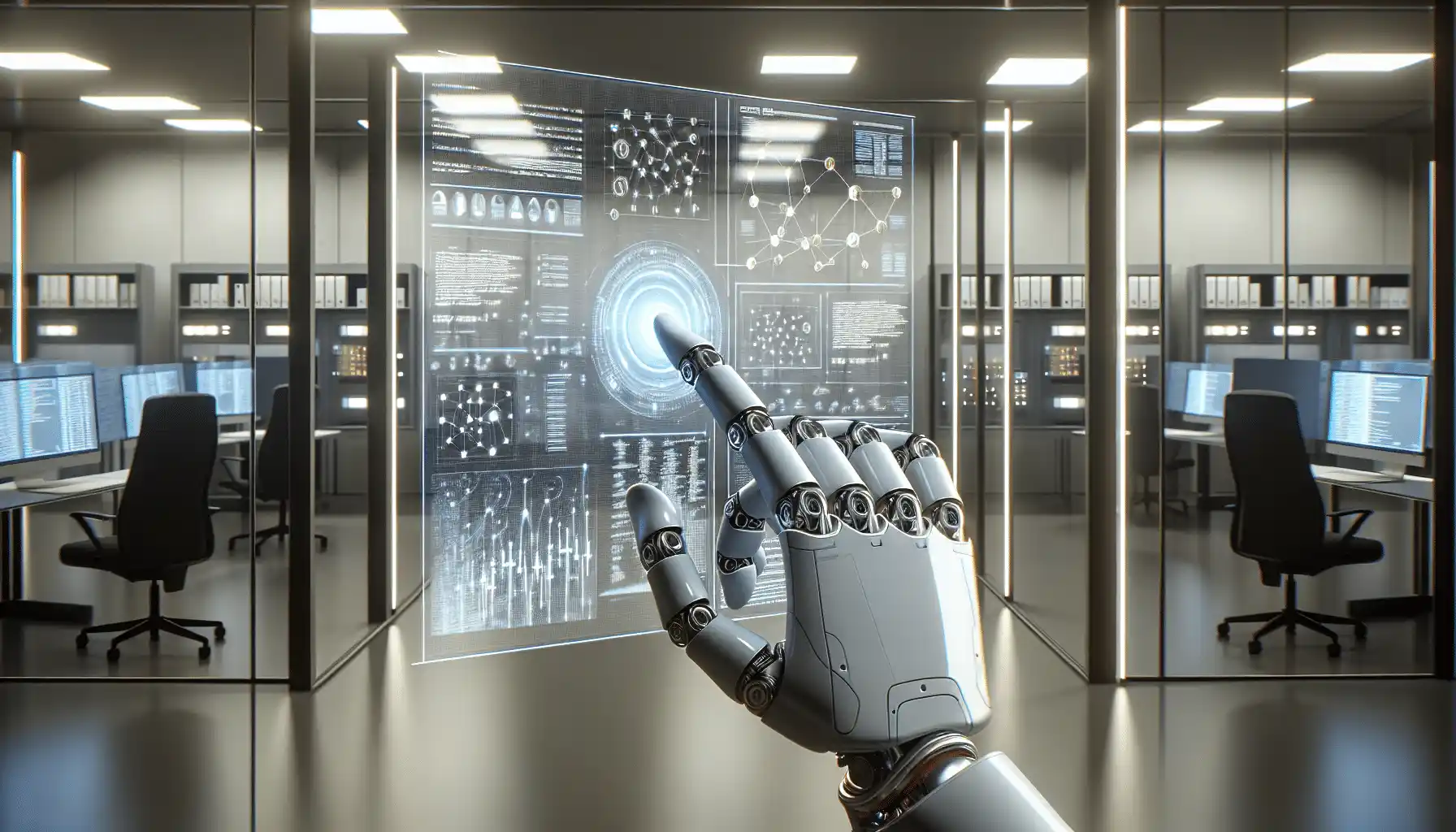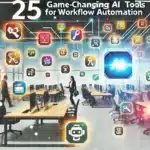Exploring AI, Automation, and their Intersections
What is Artificial Intelligence (AI)?
AI and automation is akin to a brilliant companion that learns and evolves. It uses vast data sets to improve its understanding and decision-making capabilities over time, akin to a human becoming better at a video game through practice.
Understanding Automation
Automation involves the use of technology to perform tasks with enhanced speed and precision, reducing human intervention and error. It’s like having a machine that perfectly prepares your morning toast every day without fail.
The Synergy of AI Automation
When combined, AI Automation can greatly enhance technological capabilities, creating systems that not only perform tasks automatically but also adapt and improve over time. For example, an AI-powered robot could learn to customize your morning toast based on your previous feedback, improving every day.
The Influence of AI Automation on Technology Growth
Driving Forces Behind Tech Advancements
- Efficiency: AI automation increase the efficiency of devices and systems, processing tasks at speeds unattainable by humans.
- Intelligence: AI brings a layer of cognitive understanding to automation, allowing systems to make informed decisions based on real-time data.
Case in Point: Search Engines and Home Automation
- Search Engines: AI algorithms understand and predict user intent, making search results faster and more accurate.
- Home Automation: Systems control everything from lighting to security, providing convenience and energy efficiency.
Enhancements Derived from AI and Automation Collaboration
Everyday Technologies Influenced by AI Automation
- Voice Assistants: These devices use AI to understand and respond to user commands and automate routine tasks around the home.
- Customer Support Bots: AI enhances automated responses by providing personalized support based on user history and preferences.
Key Benefits of AI Automation
- Productivity: Automation of routine tasks frees up time for creative and strategic endeavors.
- Innovation: AI analyses data to identify trends, leading to faster and more innovative problem-solving.
Successful Collaborations and Advancements
Real-World Applications
- Amazon Warehouses: AI automation streamline inventory management, from sorting to packaging, enhancing speed and accuracy.
- Automotive Industry: AI-driven robots automate assembly lines, improving production rates and quality.
Addressing the Challenges in AI and Automation Collaboration
Overcoming Obstacles
- Cost: Implementation of AI automation technologies can be expensive, but the long-term ROI in terms of efficiency and cost-saving is significant.
- Employment: Automation may replace some jobs, but it also creates new opportunities in tech and AI maintenance.
- Security: As reliance on AI automation grows, ensuring these systems are secure from cyber threats is paramount.
The Future Landscape of AI and Automation
Predicting Changes in Society and Industry
- Autonomous Vehicles: AI is steering the development of self-driving cars, which could revolutionize transportation.
- Manufacturing: Automation is set to transform traditional manufacturing processes, making them faster and less labor-intensive.
Preparing for the Transformation: Adapting to an AI Automation-Driven World
Essential Skills for the Future
- Problem-Solving: Critical thinking will be crucial as AI handles routine tasks.
- Creativity: Creative skills will drive innovation in an automated world.
- Communication: Effective communication will remain a key skill, ensuring seamless human-machine interaction.
Potential New Roles
- Data Detective: Analyzing data outputs from AI and automation to derive actionable insights.
- AI Ethicist: Ensuring ethical considerations are integrated into AI developments.
- Virtual Reality Manager: Creating and managing virtual environments for training, entertainment, and more.
Q&A Section: Deeper Insights into AI and Automation
Q1: How does AI enhance automation in industries?
A1: AI introduces adaptability and learning capabilities to traditional automation systems, allowing them to optimize processes based on real-time data.
Q2: Can AI and automation completely replace human workers?
A2: While AI automation can take over repetitive tasks, they complement rather than replace human creativity and strategic thinking.
Q3: What are the ethical considerations of AI automation?
A3: Issues include privacy concerns, algorithmic bias, and the socio-economic impact of displacing workers.
Q4: How do AI automation contribute to sustainability?
A4: They improve resource efficiency and help in monitoring and managing energy use, reducing the environmental footprint of businesses.
Q5: What challenges do businesses face when integrating AI automation?
A5: Challenges include high initial costs, the need for skilled personnel, and potential resistance from employees.
Q6: How can small businesses benefit from AI automation?
A6: Even with limited budgets, small businesses can implement AI tools for customer service, marketing automation, and data analysis to improve efficiency.
Q7: What future innovations can we expect from AI automation?
A7: Innovations may include advanced neural networks that can perform complex creative and analytical tasks, further blurring the lines between human and machine capabilities.
Q8: How can one stay relevant in a job market increasingly dominated by AI automation?
A8: Continual learning and adaptation, focusing on skills that AI cannot replicate, such as leadership, empathy, and strategic decision-making, will be crucial.
AI and automation are not just reshaping technology but are also defining the future of how we live and work. Embracing this change requires understanding, adaptation, and a forward-thinking approach to harness the benefits while mitigating the challenges.


